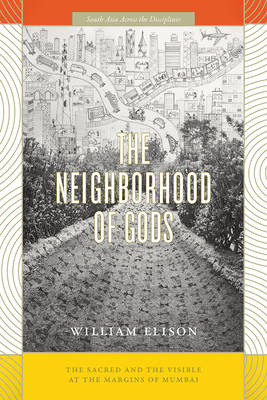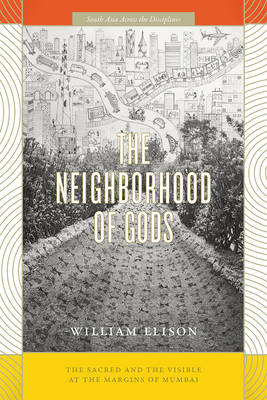
- Retrait gratuit dans votre magasin Club
- 7.000.000 titres dans notre catalogue
- Payer en toute sécurité
- Toujours un magasin près de chez vous
- Retrait gratuit dans votre magasin Club
- 7.000.0000 titres dans notre catalogue
- Payer en toute sécurité
- Toujours un magasin près de chez vous
41,95 €
+ 83 points
Description
There are many holy cities in India, but Mumbai is not usually considered one of them. More popular images of the city capture the world's collective imagination--as a Bollywood fantasia or a slumland dystopia. Yet for many, if not most, people who live in the city, the neighborhood streets are indeed shared with local gods and guardian spirits. In The Neighborhood of Gods, William Elison examines the link between territory and divinity in India's most self-consciously modern city. In this densely settled environment, space is scarce, and anxiety about housing is pervasive. Consecrating space--first with impromptu displays and then, eventually, with full-blown temples and official recognition--is one way of staking a claim. But how can a marginalized community make its gods visible, and therefore powerful, in the eyes of others? The Neighborhood of Gods explores this question, bringing an ethnographic lens to a range of visual and spatial practices: from the shrine construction that encroaches on downtown streets, to the "tribal art" practices of an indigenous group facing displacement, to the work of image production at two Bollywood film studios. A pioneering ethnography, this book offers a creative intervention in debates on postcolonial citizenship, urban geography, and visuality in the religions of India.
Spécifications
Parties prenantes
- Auteur(s) :
- Editeur:
Contenu
- Nombre de pages :
- 336
- Langue:
- Anglais
- Collection :
Caractéristiques
- EAN:
- 9780226494906
- Date de parution :
- 10-12-18
- Format:
- Livre broché
- Format numérique:
- Trade paperback (VS)
- Dimensions :
- 152 mm x 231 mm
- Poids :
- 408 g

Les avis
Nous publions uniquement les avis qui respectent les conditions requises. Consultez nos conditions pour les avis.






